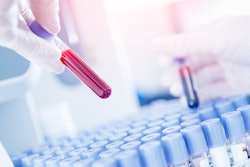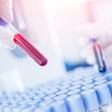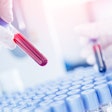
Indiana University School of Medicine researchers have developed a blood test for anxiety.
Their study, published Tuesday in Molecular Psychiatry, revealed blood biomarkers that may objectively determine an individual’s risk of developing anxiety, the severity of their current anxiety, and which therapies might treat it most effectively.
Anxiety disorders, increasingly prevalent in today’s society, can significantly affect quality of life. The current lack of objective tests may result in underdiagnosed and suboptimally treated anxiety, sometimes leading to addictions or even suicide.
Given these serious impacts, the lack of objective treatment guidance measures, and the addiction potential of existing benzodiazepine-based anxiety medications, the researchers believe there is an urgent need for more precise and personalized approaches to diagnosis and treatment.
They endeavored to learn whether identifying blood biomarkers could help match people to less harmful and more effective existing medications.
To accomplish this, they used a longitudinal within-subject design in individuals with psychiatric disorders to find blood gene expression changes between self-reported low anxiety and high anxiety states. They then prioritized the list of candidate biomarkers, validating the top biomarkers in an independent cohort of psychiatric subjects with clinically severe anxiety. Finally, they tested these biomarkers for their ability to predict current anxiety severity and future clinical worsening, using another independent cohort of psychiatric subjects. Study participants completed a blood test every 3 to 6 months, or whenever a psychiatric hospitalization occurred.
Some biomarkers were found to be targets of existing drugs, such as valproate, omega-3 fatty acids, fluoxetine, lithium, sertraline, benzodiazepines, and ketamine. Biomarker gene expression signatures also identified drugs that could be repurposed for treating anxiety, including estradiol, pirenperone, loperamide, and disopyramide. By examining these blood biomarkers, researchers found they could identify a patient’s current anxiety state and match them with medications and nutraceuticals based on their biology.
The researchers say that having objective measures of a patient’s anxiety state and new treatment options targeted to individual biomarkers may provide powerful tools for helping them. Used in combination with other blood tests, the new anxiety test may provide a more comprehensive view of a patient’s mental health. Given that individual biomarkers change with time and hormonal activity, the researchers believe such panel tests as part of a patient’s regular wellness visits could be useful in evaluating mental health over time and preventing future distress. MindX Sciences is currently developing the anxiety blood test for wider use.
“There are people who have anxiety and if it is not properly diagnosed, then they have panic attacks, but think they're having heart attacks and end up in the ER with all sorts of physical symptoms,” said psychiatry professor and co-author Dr. Alexander Niculescu, PhD, in a statement. “If we can know that earlier, then we can hopefully avoid this pain and suffering and treat them earlier with something that matches their profile. Prevention is even better, so our goal is to be able to provide a comprehensive report for patients and their physicians simply using one tube of blood.”



















